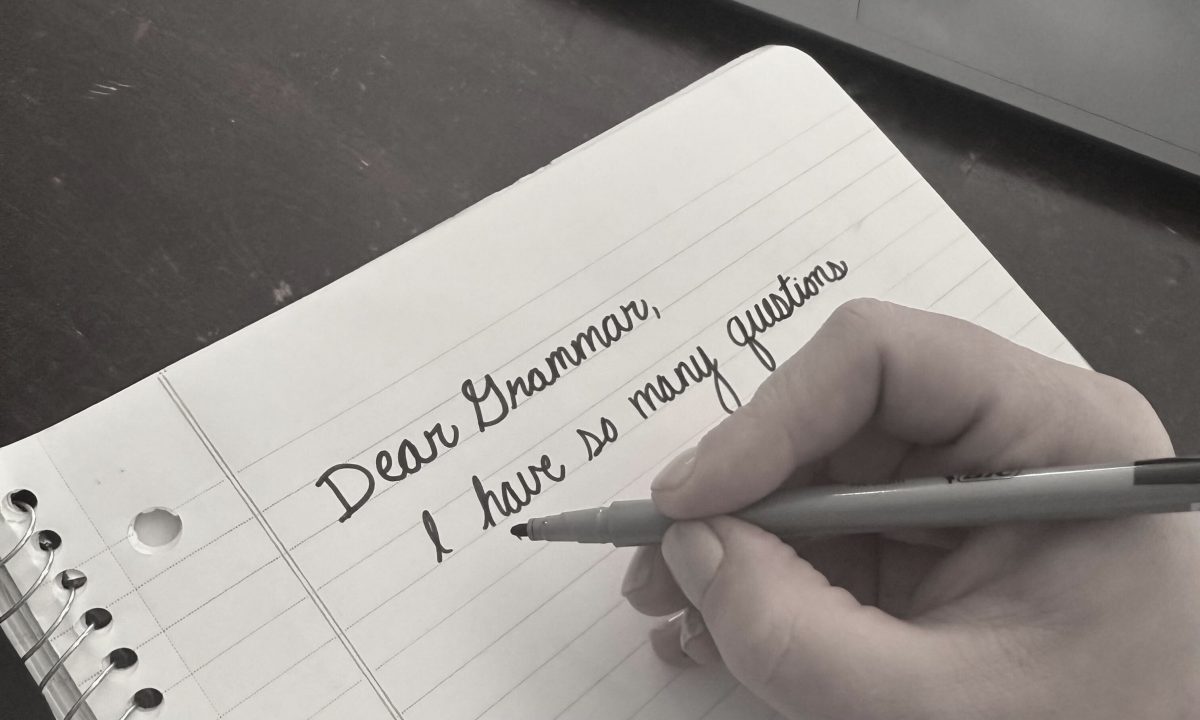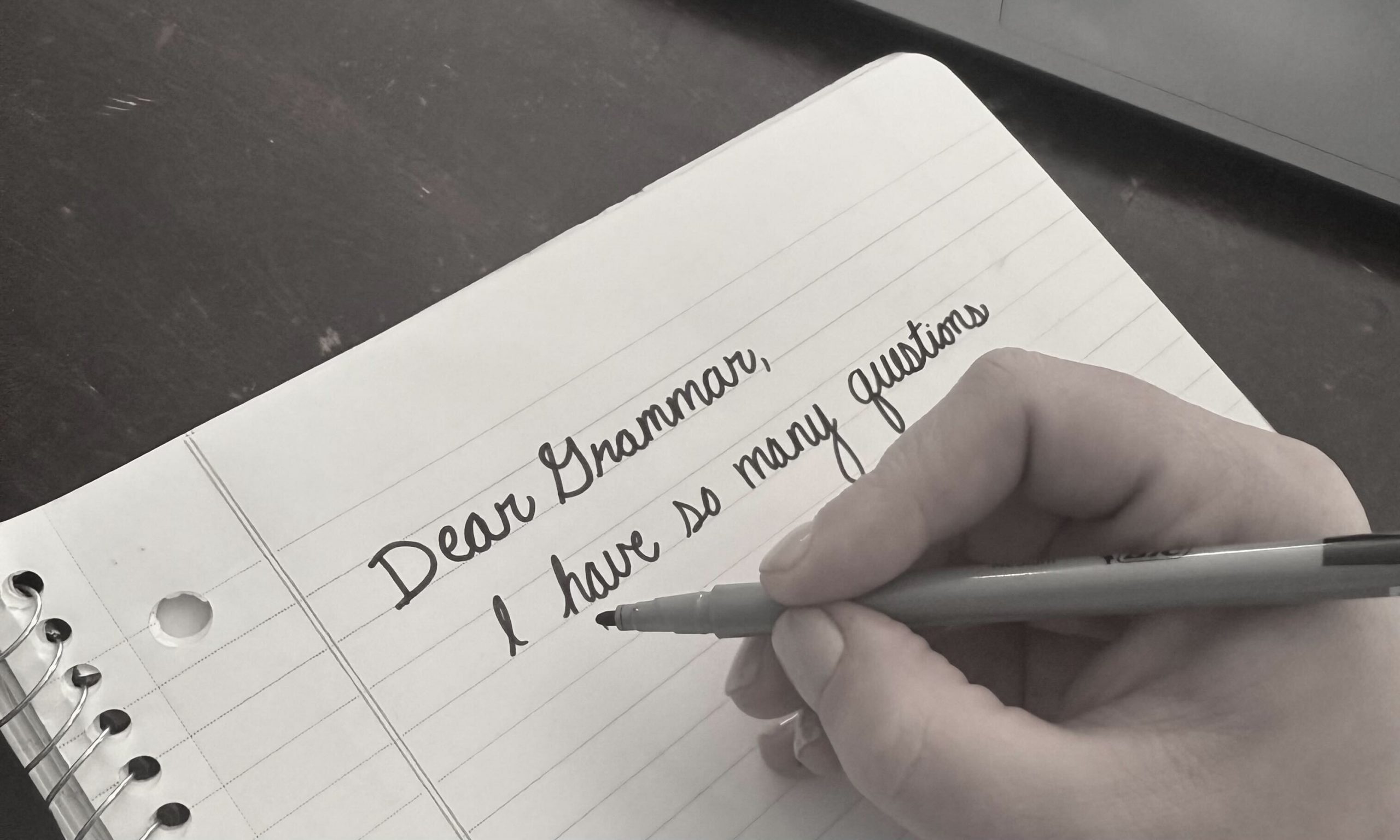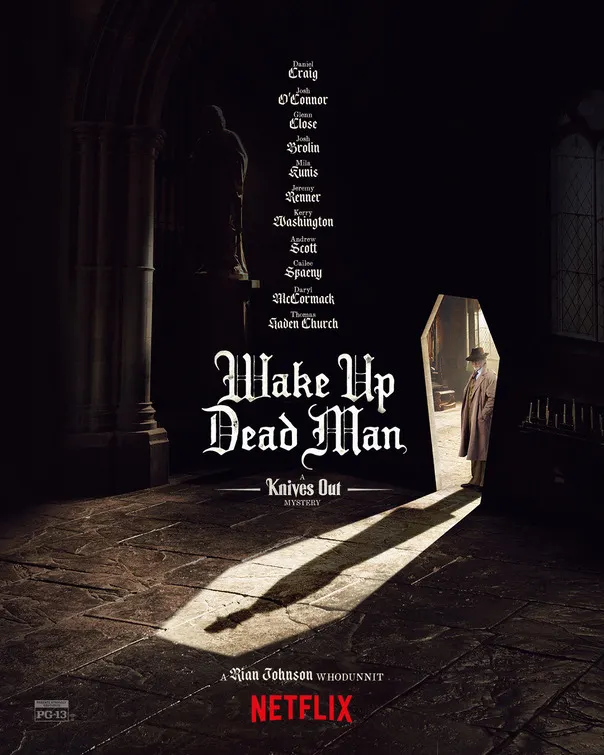- Grammar, Simplified: An Imaginary Gardens Advice Column – The First Ask
- Grammar Simplified: An Imaginary Gardens Advice Column – Less Words, Fewer Problems
- Grammar Simplified: An Imaginary Gardens Advice Column — Pause for Effect: The Art of Commas
By Mary Arsenault, Staff Writer
Grammar is a challenge for many students, myself included. It seems like people are either wired for good grammar or they aren’t… I’m with the latter group, unfortunately. Good writing is about more than just knowing where to put punctuation or where to break and start a new paragraph. There are lots of rules one needs to know to be successful and sometimes the rules are hard to understand, making them difficult to remember.
It doesn’t help that the English language is, well, kind of a mess; there are so many rules and circumstantial guidelines that make it more confusing. But there is hope for us poor confused souls!
For me, the key to improving grammatical skills is understanding the rules. If I know why a rule is the way it is, I am able to use it appropriately. Here at Pellissippi State Community College, there are some amazing English professors eager to help. As students, we are encouraged to ask questions, and boy, do I have them. So here I am, ready to ask the questions and get them answered from one of our own here at PSCC. I’ve decided to start at the beginning and try to understand how we even got here, to modern English with all its quirks.

Dear Grammar Professor,
The English language is such a mess. It feels like it’s all over the place with so many rules that often contradict each other. What happened? Why are we like this?
Sincerely confused,
Mary
Dear Mary,
The English language is a difficult-to-use, unwieldy, and inconsistent mess. As a result, many people believe that they are “bad” at it, or “don’t get grammar.” It also means that there is a whole slew of very serious and sometimes grumpy experts who are endlessly fighting for what they think of as “correct” usage. This little grammar advice column will try to answer some basic questions about why English behaves the way it does, why it makes all of us feel so insecure about using it, and what we can do to improve.
A few major points:
Point #1
There are two kinds of grammar — descriptive and prescriptive. Prescriptive grammar tells us what the rules should be and what the right way is to use a language. Prescriptive grammar instructs us to avoid fragments and comma splices, never to dangle our modifiers or split our infinitives.
It certainly has its place, but that kind of finger-wagging makes us anxious about using the language we have or trying to understand it better. I could go on a long rant about it, but I don’t have to. The wonderful Stephen Fry, an English actor, broadcaster, comedian, and writer delves further into this subject here.
The more interesting grammar, I think, is the descriptive kind, which observes and explains how speakers actually use the language, rather than harp on mistakes and perfectionism. A good stylist doesn’t simply put everyone in khakis and button-downs, but listens for personal style and applies it to the occasion. Likewise, using grammar to understand language rather than lock it down in some frozen perfection gives speakers the power to understand their grammatical options and choose which ones suit which occasion.
Point #2
There are two kinds of languages — those that change slowly and those that change quickly. A modern speaker of Icelandic, when faced with an 800-year-old text, would likely be able to read and understand it quite comfortably. A myriad of other languages, such as Tamil and Arabic, are also often brought up as examples of linguistic stability; a modern speaker of these languages can reasonably be expected to understand an old text. English is not like that.
In the last 40 years alone, we have lost several grammatical features of English. Some features we’ve lost are a form of the future tense (no one really says, “I shall go to the store” anymore) and a modal verb (while we still understand sentences that contain “ought,” very few of them are produced). We are also actively losing the ability to use and comprehend the subjunctive (who, besides your English professor, says, “If I were rich, I’d retire to a villa on the Amalfi coast?”), and our ability to apply case endings is going away (“who” and “whom” are a challenge for many speakers). This is not because we are getting worse at using the language correctly, it’s because English is changing itself right out from under us.
Point #3
English is the product of a turbulent history. Born on an island strategically positioned off the coast of Europe, English is the product of everyone and their mother trying to conquer and hold it to gain additional leverage for the conquest of the desirable European mainland. As a result, English is not really a language, but a bundle of them loosely tied with the string of modern grammar.
What we think of as irregular forms are most often remnants of perfectly grammatical forms from other languages. Our vocabulary is Roman and Saxon and Norman and Frankish and goodness only knows what else.
Ancient politics and superstitions also play a huge role; for example, our words for domesticated animals usually come from Anglo-Saxon farmers (cow, sheep, pig), but our words for meat are of French origin (beef, mutton, pork). This is because the Norman conquerors got to eat the meat that the conquered farmers produced.
Point #4
Everyone speaks English differently. As many Americans have discovered to their embarrassment, “pants” do not mean “trousers” in England. My Nigerian classmate found out to her horror that you don’t ask a stranger in an American classroom for a “rubber” when you need to erase a pencil mark, and my Australian friend was very frustrated when no one at her Knoxville area supermarket could help her locate a “courgette” to sauté with her “capsicum.”
All of this is to say that you have the right to ask questions. The answers might be weird and complex, but also more helpful than you thought. Let’s figure it out together.
Hope this helps,
Professor
Wow. Thanks, Professor! That was really helpful. It’s no wonder English can be hard to grasp with so many contributing languages fighting for dominance. It’s wild to think about how English came to be what it is today and even wilder how quickly it’s changing; in a future generation, the common language and grammatical rules could sound quite different.
In the meantime, here’s to us trying to figure out English for what it is now, however long that lasts. And I don’t know about you, but I have so many more questions! So I’ll be back, asking questions and sharing the answers. I hope we all come out of this with a little more knowledge and a lot more confidence in our writing. See you next time!





